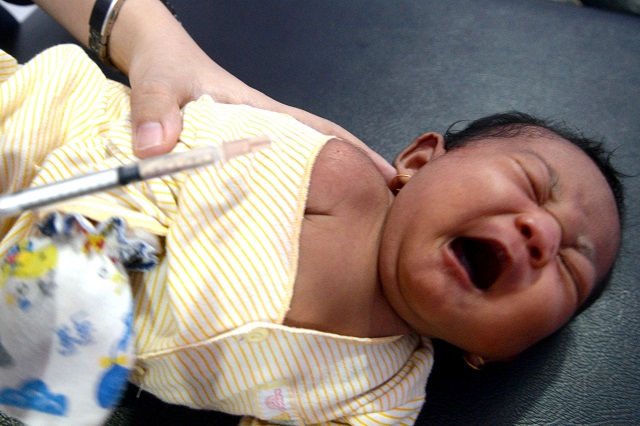
The health ministry said at least 591 cases had been reported since January, a 42 per cent increase from last year, and called the outbreak an "extraordinary event". "We have seen an acceleration in cases compared to last year ... We are implementing an immunisation programme to prevent a pandemic," said Dr Mohamad Subuh, director general of disease prevention and control, at the ministry.
Routine Immunisation: DPT vaccine to be part of EPI
The ministry recorded 415 cases and 24 deaths last year. Indonesia has among the world's highest rates of diphtheria - along with India and sub-Saharan African countries - even though vaccinations have helped minimise global cases over the past 30 years.
The World Health Organisation recorded about 7,000 cases around the world last year. In 1980, the figure was 100,000.
Diphtheria is a bacterial infection that spreads through close physical contact or through the air and can be fatal. Symptoms include fever and a sore throat, and the airway can sometimes become blocked.
Philippines halts sale of Sanofi's dengue vaccine
None of those affected in Indonesia had been vaccinated against the disease. The rise in cases was attributed to several reasons, including some people rejecting vaccinations and a lack of access to healthcare, Subuh said.
The Pediatric Society of Indonesia urged the public to participate in vaccination programmes. "Immunisation is the best protection," it said.
Immunisations will be carried out in the capital, Jakarta, and two neighbouring provinces, which have reported the highest concentration of new cases. The campaign would be stepped up in other regions from January.









1732354127-0/Untitled-design-(3)1732354127-0-270x192.webp)







COMMENTS
Comments are moderated and generally will be posted if they are on-topic and not abusive.
For more information, please see our Comments FAQ